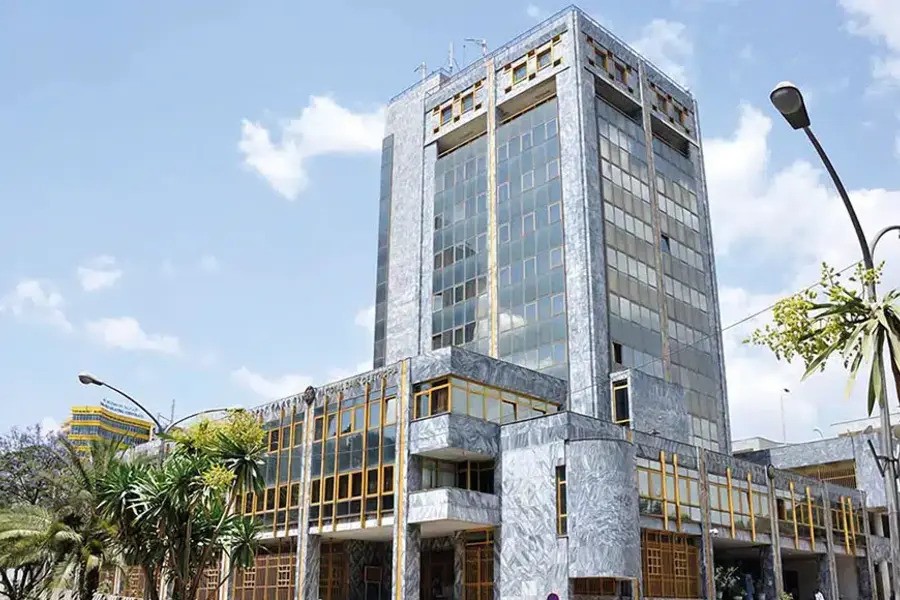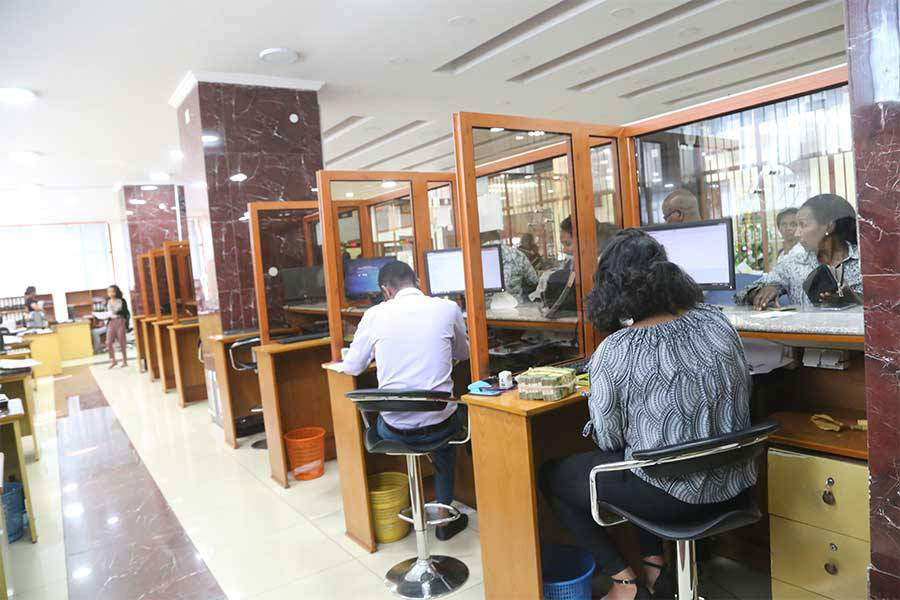
Apr 30 , 2022
By Christian Tesfaye
For some time now, we have been sold on the benefits of financial intermediation. Indeed, in theory, it is an engine that powers economic growth, especially considering the money multiplier effect. It works in a rather straightforward but other-worldly manner.
It goes like this. The central bank creates money out of thin air. Some of this, about 133.6 billion Br by the end of the past financial year in Ethiopia, exists outside of banks. The balance is deposits, making up the money supply in an economy, which stood at over 1.2 trillion Br.
A substantial amount of money goes to banks in the form of deposits, which then loan it out for an interest rate decidedly higher than what they pay in deposit interest rates. This is financial intermediation. It oils the economy, especially because every amount of money that the central bank creates is ‘multiplied’ in the economy thanks to lending at a rate that is inversely proportional to the reserve requirement.
At a macro level, financial intermediation is necessary. At the micro level, where individual rational decision making is concerned, it is a different matter.
What is the value delivered by a bank to the ordinary saver in Ethiopia? Do commercial banks really have a purpose for the average customer other than serving as a security vault for cash?
No doubt, security is not a small thing. The average customer does not have to lose sleep over the security of their savings, and with the help of technology, it also means that those savings can be accessed most of the time.
But even safety is compromised. Inflation amounts to daylight robbery. A year later, a 100,000 Br deposit probably cannot afford 70,000 Br in value of what it can buy today. Since the saving interest rates offered by commercial banks are around eight percent, in an economy with headline inflation at 34.7pc last month, savers are losing out. The banks have no proposition currently against the time value of money, not even a time deposit that has a positive real interest rate. Subsequently, the actual value of the money people deposit is not really secure. Worse still, as a result of limits on withdrawals, accessibility is also not as fully guaranteed as keeping cash outside of the banking system.
If it is not interest rates, perhaps, there is another value to keeping money in the bank, like access to services and products. One could be foreign currency. Do ordinary citizens get such access from a bank if they are seeking, say, higher education outside of Ethiopia or when they travel?
This also is not the case. The amount of money an individual needs to be able to transact on a constant basis to get a whiff of a few hundred dollars or Euros from an Ethiopian bank is unaffordable to any middle- or low-income household. It is a privilege even the super rich do not get anymore, or for that matter, exporters.
Customers of a bank thus lose on real savings interest rate and cannot access foreign currency when they need it in return for depositing hard-earned cash in a financial institution. Surely, they at least get access to credit, no?
Wrong again. At the very least, it should seem that banks should be able to give access to credit to middle- and low-income households, which make up the most significant chunk of their customer base and provide the necessary deposits that are loaned out. And yet, it is the very few with collateral and the business class types that have access to credit. The rest, which bank officers badger to open a bank account and deposit cash, are not encouraged in any meaningful way to seek loans whether they need financing for education, health or to start a new business. Banks provide loans for those looking to buy a car or a house. Still, the down payment, interest rate and maturation period are too ludicrously high for ordinary Ethiopian citizens to take those offerings seriously.
If banks do not offer their main customers a valuable discount rate (interest rate) that recognises the present value of the saver’s money or do not provide services such as access to credit or foreign currency, what are they good for? Financial intermediation may be good for the economy and the banks, but what is its value proposition at the micro level for low- and middle-income households?
Every time a bank officer asks us to open an account with them, we should ask these questions. What is the interest rate and how does it compare to peers? What amount of savings and value of transaction is needed to be able to access foreign currency? And, when I need financing to open a business, require health services, or look to buy a house or a car, how would the bank support me?
These questions should inform us whether a bank offers benefits to an ordinary customer or is simply looking to take advantage. It is about time we ask what is in it for the rest of us as bank shareholders and business types profit using the savings we provide.
PUBLISHED ON
Apr 30,2022 [ VOL
23 , NO
1148]


My Opinion | May 11,2019

My Opinion | Dec 19,2021

Fortune News | Aug 11,2024

Fortune News | Nov 27,2021

Radar | May 28,2022

Photo Gallery | 178981 Views | May 06,2019

Photo Gallery | 169177 Views | Apr 26,2019

Photo Gallery | 160051 Views | Oct 06,2021

My Opinion | 137132 Views | Aug 14,2021
Commentaries | Oct 25,2025

Dec 22 , 2024 . By TIZITA SHEWAFERAW
Charged with transforming colossal state-owned enterprises into modern and competitiv...

Aug 18 , 2024 . By AKSAH ITALO
Although predictable Yonas Zerihun's job in the ride-hailing service is not immune to...

Jul 28 , 2024 . By TIZITA SHEWAFERAW
Unhabitual, perhaps too many, Samuel Gebreyohannes, 38, used to occasionally enjoy a couple of beers at breakfast. However, he recently swit...

Jul 13 , 2024 . By AKSAH ITALO
Investors who rely on tractors, trucks, and field vehicles for commuting, transporting commodities, and f...

Oct 25 , 2025
The regulatory machinery is on overdrive. In only two years, no fewer than 35 new pro...

Oct 18 , 2025
The political establishment, notably the ruling party and its top brass, has become p...

Oct 11 , 2025
Ladislas Farago, a roving Associated Press (AP) correspondent, arrived in Ethiopia in...

Oct 4 , 2025
Eyob Tekalegn (PhD) had been in the Governor's chair for only weeks when, on Septembe...

Oct 25 , 2025 . By YITBAREK GETACHEW
Officials of the Addis Abeba's Education Bureau have embarked on an ambitious experim...

Oct 26 , 2025 . By YITBAREK GETACHEW
The federal government is making a landmark shift in its investment incentive regime...

Oct 29 , 2025 . By NAHOM AYELE
The National Bank of Ethiopia (NBE) is preparing to issue a directive that will funda...

Oct 26 , 2025 . By SURAFEL MULUGETA
A community of booksellers shadowing the Ethiopian National Theatre has been jolted b...